Sidetracks And Detours present PASS IT ON 36 weekend walkabout Supplement 21 1 2024
Sidetracks And Detours
present
PASS IT ON 36
weekend walkabout Supplement 21 1 2024
If you are looking to settle down with some interesting reading then look no further. If you have found this page you might already know there are over a thousand items free to read in the Sidetracks And Detours / PASS IT ON archives. So please feel free to share that with your like-minded arts loving friends. If it is history you like, hop on and if it is Jazz you like, join us, or if folk is your thing fly with us, or if it is classical come join us. If you love Americana align with us, and if you are simply looking for Island Insights you are invited too. We have some great contributors in this issue and we are very grateful to all of them.

CONTENTS

Researching History
FOLK AND FOLKIES::Folk Singing In The Wake Of Cecil Sharp
by Michael Higgins
all across the arts
GOOD VIBE ON A FLIER
by Steve Cooke
I Love Manchester
Steve Reich Festival
preview by Newsletter

Live Jazz
FORTHCOMING EVENTS
Previews by Jazz In Reading
Recorded Jazz
ONE HARE, ONE OWL; by Jenny Bray
discussed by Norman Warwick & Steve Bewick
Jazz On Air
HOT BISCUITS
served up by Steve Bewick
Music In Portsmouth
The Sitkovetsky Trio Chichester Chamber Concert series December 2023
review by Peter Andrews
A Reader´s Perspective, All Points Forward
Americana Number-Crunching : THE CONNUNDRUM
by Peter Pearson
Island Insights.
BOHEMIA: Playa Blanca December 2023
review by Norman Warwick
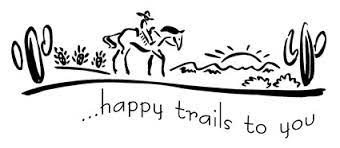

Researching History
FOLK AND FOLKIES::
Folk Singing In The Wake Of Cecil Sharp
by Michael Higgins

In 7 January’s PASS IT ON I reviewed David Sutcliffe’s biography of the folk song and dance collector Cecil Sharp (right). I recounted the author outlining the detractors of Sharp’s ethos since Maud Karpeles revised an earlier reverential biography in 1967. Sutcliffe showed Sharp’s critics pointing to ‘cultural appropriation’, ‘selectivism’, and ‘class oppression’ in that Sharp and his folk music enthusiasts were all middle class professionals exploiting the labouring classes for their own purposes.
Critics pointed out that Cecil Sharp and his educated middle class folk music collecting coterie were really purloining the ‘music of the people’ for their own reputational and pecuniary advantage. It is argued that Cecil at least was biased against progress and modern industry and therefore ignored any work songs associated with city toil and heavy industry where the bulk of the lower orders then worked. In the process they had created a fake folk heritage that suited their idea of a lost past core of what constituted the English soul. And of course Cecil Sharp was limited initially by his pathfinders – the local Anglican vicars of Somerset and Devon who located singers from their own parishes for him to meet. Hence an original field campaign in those counties.
In the twentieth century introspection which followed Sharp’s death and the growth in number of newer generations of folk song lovers, the inevitable question came to the fore: What is Folk Song (or dance for that matter) and who are the Folk? Sharp was pretty clear that the folk belonged to the shrinking folk population of the rural landscape and pre-industrial village. Unaccompanied singing or song accompanied by portable fiddle or the new concertina or accordion was its heart, and Folk song belonged in home, small workshop, public house or barn. In this Sharp followed the ‘Volkslied’ (folksong ) of the German’ Volk’ or simple country folk of the Brothers Grimm who found the true folk of Germany in the world of their great ‘ Children and Household Tales’ project during the final years of the French occupation and the end of the Napoleonic Wars.
However Cinderella, Snow White, Rapunzel, the Frog Prince (or king) etc were not collected by the brothers from the country folk themselves but from their own professional or middle class and aristocratic friends who remembered tales told to them by servants, nursemaids and workers on their own estates. And many of these families had French ancestry whose tales later proved to have come through French sources. Likewise some tales came from professional village storytellers, many of them got from tales told by travellers, or from original printed stories. Yet Hitler, a century later, praised the tales for representing the true Aryan struggle against enemies of the race or das Volk. In England and Germany the folk or volk could also mean the race.
Likewise many of Sharp’s songs collected from rural singers have since been traced to old ballads or ditties printed in earlier broadsides. Some songs suffered from what is now termed ‘Mondegreens’, an unconscious substitution of one word for another when trying to sing a song heard from someone else’s singing . So ‘they laid him on the green’ becomes ‘the Lady Mondegreen’, or in our own day ‘While Shepherds washed their socks by night’ from the well know Christmas Carol. Or in Sharp’s case one singer is known to have substituted ‘Torquay’ for Turkey as the destination of the departed lover.
The question of who are the Folk arises perhaps from the demonstration teams started up by Sharp and others to show the collected Morris Dances, originally taught to the young girls in rural frocks and bonnets of Mary Nield’s Esperance Working Girl’s club. Sharp soon developed reservations, perturbed that the essence of the dance was male as all his informants were men who had danced when their teams were performing in the latter half of the 19th century or who knew something about the steps and figures. And after his death, new dancing teams of men were formed by ‘middle class’ enthusiast, following the instructions outlined in Sharp and MacIlwaine’s Morris Book. To outline their masculine bearing versus Nield’s demonstration girls, they became known as ‘Morris Men’ a term unknown to the first contemporary dance team, the very male Headington Quarry Morris Dancers. They were already men, they didn’t need to advertise it.
As if anticipating JRR Tolkien (an industry- despising inner folk spirit contemporary of Sharp) the Morris Ring was formed in 1934 to bring the growing Morris Dance movement under one umbrella, In each team the leader was termed ‘squire’ a strange elitist and middle class concept, while the treasurer became the pseudo biblical ‘bagman’ a la Judas, who ‘held the bag’ for the disciples in the King James Bible. To be fair to the Morris Ring Tolkien was not able to publish his epic Lord of the Rings till after the Second World War but ‘Squire of the Ring’ as applied to Morris Dancing is perhaps a foreshadow of the irony to come.
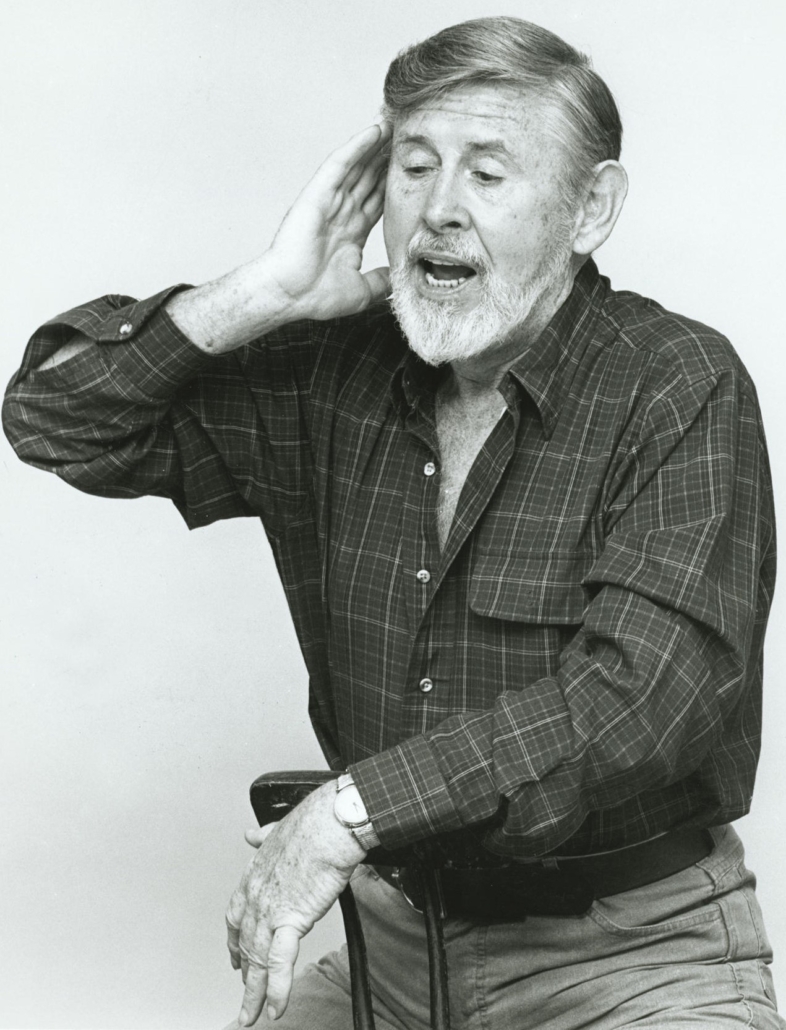
In Folk Song some of the more Marxist element of criticism was exemplified in the Stalinist Salford Folk Singer James Miller, who allegedly changed his name to Ewan MacColl after deserting the British Army during the Second World War. Stalin had deemed it now alright for Communists to join capitalist armies in the common fight against Nazis., But Miller alias MacColl wrote songs and poems against the British and American armies whilst in ‘hiding’, thus avoided fighting for anyone’s country. He carried the class struggle through folk song until his death in 1989. Despite writing commercial hits such as The Last Time Ever I Saw Your Face, he also wrote the folk hit Shoals of Herring for a TV Programme on the fishing industry, allegedly ‘in five minutes’ in the BBC canteen toilets. Also in the folk vein was his enduringly popular Dirty old Town about his home city of Salford. In Sharp’s eyes MacColl’s commercial enterprises would not classify as true folk songs. Yet Miller/McColl also spent a lifetime learning ‘traditional’ songs from town and country throughout the land. These Sharp may have approved of. Not so enduring was MacColl’s alleged insistence that male folk singers adapt pseudo folk costumes such as fishermen’s ganseys and beatnick goatees or beards. Thus the folk singer must fight the proletarian fight.
And the burgeoning popularity of ‘modern folk’ became entwined with the laborious, nasally intoned and monorhymed lyrics of Bob Dylan. Also the protest songs of Joan Baez in folk music and its various branches spreading from the coffee bars of the USA began to provide a confusing mix in folk and beat clubs of the 1950s and 60s. Again the question arose, ‘What is or are the Folk? Are they Americans too? Are they beat? Are they hip? Do they jive?
Medievalists such as I know that the folc of Old English poetry and prose are our modern ‘English Folk’, or ‘us’ ‘the Angelcynn ‘or ‘English Kin’ engaged in endless struggle against the wealas , ‘the ‘Welsh’ or foreigners. In my time, in the 70s and in the here and now however, the folk are the friendly folk living next door or who treat us in ‘folsky’ or familiar way. In Sharp’s day the true folk were known quaintly as ‘The peasantry’ with old fashioned ways and manners, the strange rural workers and servants who re-iterated their antique rudeness in the song I learnt in primary school in England, Owd John Braddlum with its line, ‘Ee what country folk we be’

And it is here that brings me to the day I walked into a Sunday practice session of Oldham Tinkers folk group in The Oldham Hotel on Sunday in the seventies. Fresh from fourteen years of life in Canada I was looking for somewhere to read my poetry. After standing up to recite everyone decided to go to the bar, leaving rows of empty seats as I intoned very deep and very un-folksy rhymes and unrhymes. Larry Kearns, the frontman of the Tinkers leaned over to me and suggested I sing something next time. In exasperation I dredged up all the appropriate songs I could think of from my school and church choir days, including Owd John Braddlum, Tom’s Grey Mare, Summer is icumen in sung to a German tune called The Cuckoo, Sir Walter Scott’s Soldier Rest and The Mermaid. It took me a while to adjust to singing lyrics rather than reciting them and the war of the Folkies was only a future hint of the horizon. But later I did recall Lord Randal, a traditional ballad I learnt by chance from the actor Robert Shaw, who sang it on a TV programme I was watching. I remembered the tune, or at least enough of it to sing later. Sharp may have approved of this but not any of the others I sang. For all I know, I remembered it imperfectly and the Higgins version is now unique in Folk circles.

In exasperation I dredged up all the appropriate songs I could think of from my school and church choir days, including Owd John Braddlum, Tom’s Grey Mare, Summer is icumen in sung to a German tune called The Cuckoo, Sir Walter Scott’s Soldier Rest and The Mermaid. It took me a while to adjust to singing lyrics rather than reciting them and the war of the Folkies was only a future hint of the horizon. But later I did recall Lord Randal, a traditional ballad I learnt by chance from the actor Robert Shaw (left), who sang it on a TV programme I was watching. I remembered the tune, or at least enough of it to sing later. Sharp may have approved of this but not any of the others I sang. For all I know, I remembered it imperfectly and the Higgins version is now unique in Folk circles.
Purists singing with fingers in their ears and intoning ‘As Oi went out one May mornin’ in their best Zummerzet accents, in a sort of reverential antiquarian way, vied in my day with modern American accented Joan Baez fans. And deep metaphysical poets such as myself lost out to reciters of Marriott Edgar type ditties, such as The Lion and Albert or the Battle of Hastngs. Even the Tinkers themselves took a light hearted view of life and the folk genre, composing many, if not most, of their songs themselves. Some of their oeuvre were traditional Lancashire children’s play songs, other songs such as John Willie’s Ferret and other John Willie songs made fun of folk from their own past. They also performed one my grandfather used to sing, a commercially composed song called, A Mon Like Thee. At the Tinkers’ sessions and at many folk clubs I frequented in those heady days, the traditional songs of Sharp’s own era of garnering, were indeed sung by the trads, including me, and indeed sung with feeling. But I have never sung that dreary dirge my father and grandfather used to sing, the traditional lament McCaffery.

Traditionalists had to vie with the newer taste for protest a la Dylan, Baez and Miller/MacColl. In fact really in those days anything at all seemed to go down well at these sessions at the ubiquitous ‘folk club’. The Folk are no longer isolated simpleton’s gathering to sing in barns and public houses of false lovers, hard farm-work, and ‘going off to the wars’. Now they vie in spirit with acolyte ‘Folkies’ who follow and sing of being Part of the Union, Dirty Blackleg Miners, and such non agricultural songs as Blowin’ in the Wind ,and and Mick Softley’s Goldwatch Blues. And then there was Donovan, whose Cuttin’ Out song I used to sing. ‘Folkies’ can be dogmatic in their own interpretation of what folk music is but no one dominates.
As for blues, well, critics of ‘Sharp once complained of the propriety of teaching out- of- fashion songs remembered by old singers of the waning 19th century to schoolchildren. There was no such stricture applied to young British musicians such the Rolling Stones, Animals and Pretty Things of the sixties becoming entranced by the music of old transient black folk and negro cotton pickin’ guitar players. Young men singing old negro folk blues, most of the songs being attributable to named singers-from Blind Lemon Jefferson to Robert Johnson ,who had sold his soul to the Devil and paid the price, was gleefully embraced into the pop world. The Sixties saw the birth of ‘electric folk’ epitomised by Steeleye Span, who had a hit parade hit with All Around My Hat. And as for English traditional folk song the sixties and seventies were the heyday of young men singing the songs of their great grandfathers, or at least someone else’s great grandfathers.
Despite my mixed repertoire of songs I also sang the traditional songs, such as a version of The Oak And The Ash sung by Lucie White (with mixed and mis-remembered verses) to Cecil Sharp in his early foraging days. see below

However I have never sung two of the music hall songs she and her sister also sang, TheVillage Well and Down the Coal Mine. Sharp had a strong dislike to Music Hall and as I had never heard of the songs till I read David Sutcliffe’s book the point is moot.
After the eighties I had a long hiatus from Folk clubs. After a break of many years, I was lured back into singing via Norman Warwick and Robin Parkers’ ‘Bards from the Baum’ poetry and folk sessions at the Baum public house in Rochdale. Once again Norman asked if I could sing or play an instrument and I fell back not just on my own poems but on other poets’ work which I had already set to music in my days of idleness. So Keats, Tennyson, Clare, Blake, Byron and others, including myself, were sung to my melodies and I continue to sing both traditional songs too –some medieval, some Elizabethan, Many 18th and 1 9th century lyrics with tunes that to me echo the folk melodies collected by Sharp and his contemporaries over a hundred years ago. Like Sharp, it is the melodies which enchant me. And like Sharp I always envisage a folk song as an echo of past times, relived as a joyful, sentimental or rueful reflection of those marvellous’ folk’ who sang and played as part of the soul of their own life and times. But as I have a sense of humour, and of the present tense, I appreciate the urge to ‘turn the tables’ on the glorious past and mimic folk singing fables and foibles by cocking a snook at traditional gospel. Hence my wincing and yet smiling when someone sings that great, but stomach churning half parody of Lord Randal: ‘Green and Yellow’.
So if anything now goes in a Folk Club, unless it is a 70 piece orchestra and ear blasting monotonous brainwashing retro House Music, the question Who are the Folk? doesn’t seem to matter. There is no one in charge of the ‘movement’. When someone sings they imagine themselves to be part of the folk of their song. But that is song. Dance is another matter, and a great controversy in which the question, who are the Folk?, and what is a folk dance?, eventually took a great toll of my time and energy. Yes, dear reader, I mean the Morris Dance to which I turn in a following article. And of course in Morris Dance one enters the hop at his own peril. That is where the struggle for the Folk versus the ‘Folkies’ really turns (or at least turned then) to the grinding. In Folk singing there is no oversight and limit on repertoire or subject. In Morris Dancing there is the Morris Ring and the whole weight of academic and bossy, opinionated, out- of- the –ring know it alls of every description. Hold on to your hats…or wait till next time. The leader of the Royton Morris Dancers in 1900 wasn’t a bare knuckle boxer for nothing.


GOOD VIBE ON A FLIER
by Steve Cooke

VIBE ROCHDALE is a charity [no. 1205670] that promotes improved mental health in children and young people aged 11-24 years in the Greater Manchester area by providing opportunities to engage in the creative arts.
Through the provision of activities which develop their skills, capacities, and capabilities in the creative arts, enabling them to develop resilience to the mental health challenges they face and to participate in society as mature, responsible, and contributing individuals.
The provision of opportunities to work alongside professional creatives and technicians in areas such as:
visual arts animation, photography, drawing and painting,
music songwriting, playing a musical instrument, rapping,
technical guitar building, audio and video recording,
computer maintenance and production,
writing composing previews, reviews, and interviews for broadcast, print and social media, creative-writing, and poetry,
performance recorded and live.
MONDAY 3-6PM – creativity session where anything goes.
WEDNESDAY 3-6PM – quiet session focusing on such as visual arts and creative writing.
THURSDAY 3-6PM – noisy session focusing on music and video making.
IF YOU ARE, OR KNOW, A CHILD OR YOUNG PERSON AGED 11-24 WHO COULD BE INTERESTED, PLEASE CONTACT STEVE COOKE:
Email: stevecswct@gmail.com
Phone: 07870951530


l
Steve Reich Festival
preview by Newsletter
1st to 3rd February 2024 – BOOK NOW

At the beginning of February, the Hallé presents a three-day celebration of the music of Steve Reich, a living legend from the world of contemporary classical music.
Three separate concerts, forming part of the Hallé’s new ‘The Hallé Presents …’ series, will be performed at both The Bridgewater Hall and Hallé St Peter’s. These collaborative events will see the Hallé joined by world-class artists Colin Currie, ‘the world’s finest and most daring percussionist’ (The Spectator), and Radiohead’s Jonny Greenwood, as well as young musicians from the Royal Northern College of Music and Chetham’s School of Music.
The concerts feature over ten major works, including some of Reich’s larger scale masterpieces such as The Desert Music, and The Four Sections, and iconic smaller works such as Music for Pieces of Wood and Mallet Quartet, written for percussionist Colin Currie who performed it at two consecutive sold out concerts in the Queen Elizabeth Hall, London. Tens of thousands of people heard Radiohead’s Jonny Greenwood perform Electric Counterpoint at Glastonbury Festival, which will be reprised in The Bridgewater Hall alongside Reich’s 2019 multimedia work Reich/Richter, composed for a film by visual artist Gerhard Richter and film maker Corinna Belz, has been presented in over 100 live performances to great acclaim.
1st February 2024
The Hallé Presents Steve Reich Desert Music – The Bridgewater Hall
2nd February 2024
Chamber Series Steve Reich Radio Rewrite – Halle St Peters
3rd February 2024
The Hallé Presents Steve Reich Electric Countpoint with Jonny Greenwood – The Bridgewater Hall
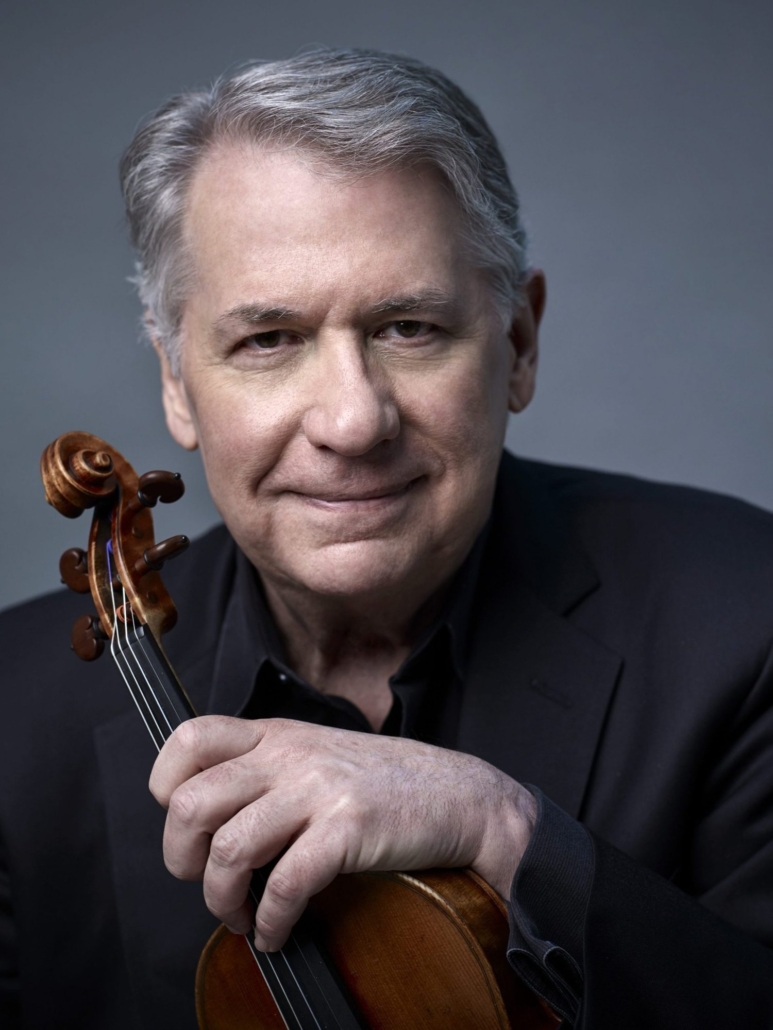
Hello Friends Old and New,
I want to say to all of you what a great honor it is to be appointed the new Artistic Director of Manchester Music Festival. My colleagues on the festival’s staff, the board of directors and I have worked tirelessly to create a memorable menu of musical delights for all of you for the 50th Anniversary in 2024. The theme of Festival will be called “The Romantic Journey”. I have always thought of each program, and especially a series of thematically-linked concerts, as a kind of journey—one that both increases our knowledge and deepens our enjoyment of these great works of Art. We will explore the definition and roots of Romanticism, experience the passing of the romantic torch from Beethoven to Schubert, Schumann, Mendelsohn, Brahms and onward to Tchaikovsky, Debussy Dvorak, Respighi, and Barber. The journey will take us all the way to a newly commissioned work by Sarah Kirkland Snider, exploring romanticism from the viewpoint of today. We will also have concerts featuring our Young Artists and a special program called “Given a Chance”—romantic works of composers who struggled to have their voices heard due to their gender and/or the color of their skin. We will also present two family concerts for children, informative and fun. The opening program of the festival, performed by the Wu Han-Philip Setzer-David Finckel Trio, will consist of two monumental works that helped herald the new Romantic Era of the 19th Century: Beethoven’s “Archduke” Trio, op. 97 and Schubert’s Eb Trio, op. 100. The festival’s Grand Finale will feature the great American Soprano, Christine Goerke, who had tremendous success as Brünnhilde in the most recent production of Wagner’s Ring Cycle at the Met Opera. We certainly hope you will join us next summer as audience members. We cannot do this without your help. I know I speak for everyone involved when I thank you from the bottom of my heart for your friendship and support.

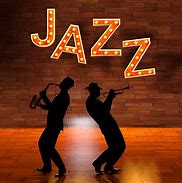
Live Jazz
FORTHCOMING EVENTS
Previews by Jazz In Reading About Jazz in Reading
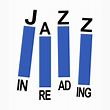
Jazz in Reading stages regular events with top-class bands at Reading’s Progress Theatre.
We list jazz events in Reading and the wider area at no charge – simply submit your gig details. We also offer an affordable service to further promote events – such as the one above – by email:
Jazz in Reading, using its extensive contacts in the jazz world, is in an excellent position to help you find the right band for your wedding, party or other special occasion.
Check out their excellent web site for comprehensive details of all the gigs below, including ticket prices and availability
Oaken Grove Vineyard
Benhams Lane
Fawley, Henley-on-Thames
RG9 6JG
Friday 2 February
Doors 6:30pm, Music 7:30pm
£25
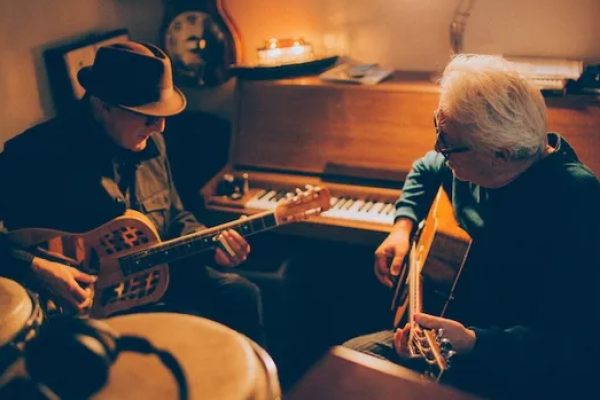
Michael Messer and Chaz Jankel
I remember David Deverson and I including Michael Messer in the then newly launched Detour magazine. Dave was a big fan of Messer and certainly converted me to his incredible instrumental work, when he was producing a lot of numbers that we considered to be damned high quality Americana work. He delights jazz fans, too, so banish the January blues…with the blues! Join slide guitar virtuoso, blues innovator (and favourite of Johnny Cash) Michael Messer, and multi-instrumentalist songwriter Chaz Jankel of Ian Dury and The Blockheads as they begin to tour their debut album, Mostly We Drive.
This unmissable collaboration has created a finely crafted, lyrically inventive tour-de-force, with upbeat, groove-based, feel-good music to brighten up the grey months. This is an exciting new collaboration between two seasoned blues legends.Come and hear the new album live before the tour kicks off! Be part of Oaken Grove’s first blues night.
Throughout his forty-year career, Michael Messer’s music has remained individual and contemporary. He has released eleven albums, toured worldwide, recorded numerous live radio and TV sessions, and even appeared in a blues-themed episode of BBC TV show, Zingzillas!
Chaz Jankel is best known for co-writing many hit songs with Ian Dury & The Blockheads, producing classics such as ‘Hit Me With Your Rhythm Stick’ and ‘Sex & Drugs & Rock & Roll’. He also has several composer credits for films, including music for the Ian Dury biopic, Sex & Drugs & Rock & Roll (2010), for which he received a BAFTA nomination.
“Messer is a UK resonator/blues/slide guitar master with a positive pedigree in acoustic blues.” – Cashbox Magazine.
Burgers from the Little Urban Chef will be available to purchase on the night and our bar will be open for a selection of wines, beer, spirits and soft drinks.
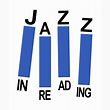
Tuesday 6 February
The Crooked Billet, Newlands Lane, Stoke Row RG9 5PU
Arrive between 6.30 – 7.00 pm (pre show dinner) on stage 8.30pm
Full regular menu, £30 music cover charge, Special discounted £20 ticket price to Jazz in Reading recipients – tell the Crooked Billet when you book.
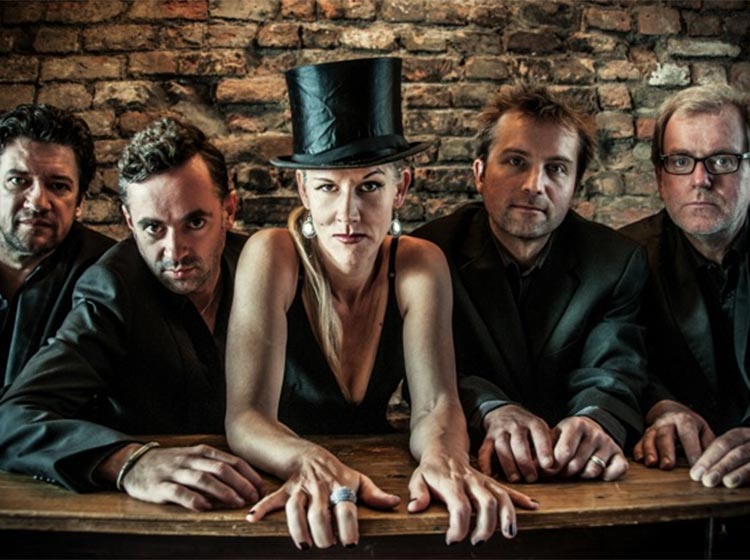
Moscow Drug Club (right) are an intoxicating curious experience, and we included a vibrant and positive review by Trevor Bannister recently that captured the full experience of an earlier gig. Imagine having a few to drink and staggering into the darkness of an East European cobbled street and stumbling into a bar where Django Reinhardt, Keith Richards & Tom Waits are having an after-hours jam with local Tziganes playing original material with songs by the likes of Jacques Brel, Leonard Cohen & Eartha Kit
Moscow Drug Club – an all-star line up, the very finest jazz musicians: Katya Gorrie, Mirek Salmon, Jonny Bruce, Andy Bowen & Andy Crowdy
For further information, tickets & table reservations contact the Crooked Billet on 01491 681048 / 682304 or paulclerehugh@thecrookedbillet.co.uk
Crowmarsh Jazz presents
Wallingford Winter Blues
and Jazz Weekender 2024 Friday 16 to Sunday 18 February
Sponsored by Wallingford Town Council and BunkFest
Fri 16 Feb
5 pm Launch Event The Night Herons | Town Hall | Free
7.30 pm Jazz and Blues Divas – Fleur Stevenson, Rebecca Poole & Vimala Rowe | Corn Exchange | £20 |
9 pm Hendrix & Hip Hop – Denny Ilett plays Jimi Hendix followed by MC Conrad | Venue TBC | £10 |
Sat 17 Feb 10.30 am Cholsey Silver Band | Waitrose | Free | Just turn up
10.30a m Funky Friday (on a Saturday!) with Maff Potts |
Family Centre| Free |
12.30 am Live Jazz in the Town Square – Mix of Surprise artists | Town Square | Free | Just turn up
2.00 pm Stuart Henderson & Jez Cook | Bunkline |
2.30 pm Film Screening – Soul (PG) Pixar Music Animation | Town Hall | Free |
5.00 pm Four + One | 5 Little Pigs | Free | Just turn up
7.30 pm A Night of Frank & Louis with Enrico Tomasso & Denny Ilett | Corn Exchange | £20 |
8.30 pm Hugh Turner Heavy Funk | The Dolphin |
10.30 pm Late Night Jazz & Blues Jam | The Dolphin |
Sun 18 Feb
11.00 am Fleur Stevenson & Maff Potts | Waterside Court Care Home | Free | Just turn up
2.30 pm Oxford Community Gospel Choir | St Mary’s Church| Free | Just turn up
5.00 pm Sounds of Blue Note – Pangbourne Jazz Club featuring Ben Cummings | OPO | Free | Just turn up
7.30 pm Brothers from Another Mother | Town Arms|

Recorded Jazz
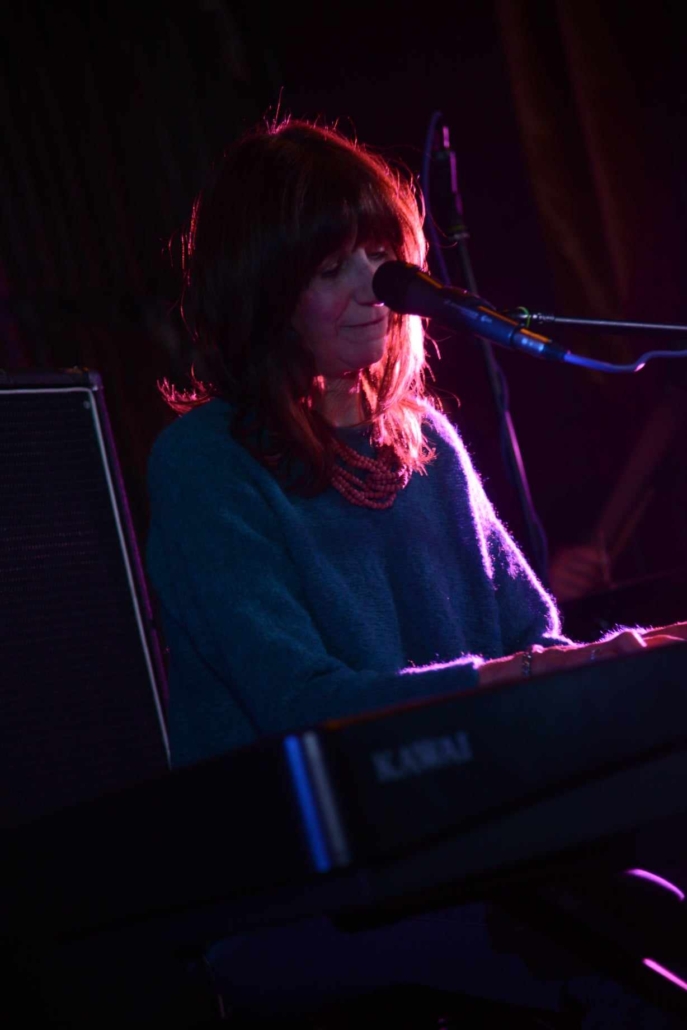
ONE HARE, ONE OWL; by Jenny Bray
discussed by Norman Warwick & Steve Bewick
So, Norm, did you listen to my first serving of Hot Biscuits in 2024? I thought I laid on some fine fare and introduced the new album by Jenny Bray (right) , played some tracks off the album and spoke to Jenny about them.
Norm
Of course, I listened. I always listen ! Seriously, I thought The interview made really good listening and it was great that she has generously allowed me to set the interview into print on our pages to share with our readers
It was actually the second time I have interviewed her and this was perfectly time for an album released on line only a couple of weeks ago and to announce that it may also yet come out in CD and / or vinyl form.
Yeh, as you know, we ran an occasional series in our daily Sidetracks And Detours and in our weekly PASS IT ON. Really, they were brief ´progress reports´ from Jenny about the various stages of recording One Hare One Owl.
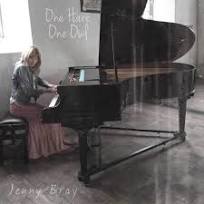
You´ll have heard Jenny say on Hot Biscuits that she thought that the title was inspired by a scene she saw whilst driving near her home of a hare on one side of the road and an owl on the other, and she then thought that image captured the spirit of the album. However she has since hear the title spoken of as the other way and even called One Owl One Rabbit. She reminded our listeners that the title is definitely One Hair One Owl !
And we both know the album has taken about a year from the first conception of it to its birth, and much of that year has been taken up by recording. Of course, to ardent fans like us, who can´t wait to hear the album, that year felt like an eternity.
Even so, Jenny that year went quite quickly really but she look back at it now and is surprised by how much they all completed in that time. She was working with producer Justin Johnson, for whom she is full of praise. and she was really pleased with the work they delivered over the year. She did say they occasionally felt that there were times when the process might have been slowing down. Now, though, she is genuinely amazed at how much was achieved.
There are ten songs on the album, and the musicianship of all involved is ´really fantastic as she said on your show, and I have to say that I think the production value are very high indeed..
As you know the album was made available on-line on on 1st December 2023- Jenny says she would like to release it, too, in the more usual format of a cd with a decent sleeve and notes., She is looking into that at the moment, and even. considering putting it out on vinyl, too, but I haven´t had time to think about the artwork yet. She´s too busy writing songs, apparently. She told our listeners that when she is not performing, or promoting or doing admin she is sitting at the piano, I love nothing more than sitting at the piano but says ´it sometimes feels there´s all this other stuff to do´.
I think that is something we fans forget, and I believe its true in every genre of music, until a recording feal is offered, (which surely one will be for this quality of writing, musicianship and production, then artists like jenny have to be creative, writing songs and playing gis, but also have to manage their artistic careers, becoming involved in all aspects of the industry, the presentation, the marketing, giving interviews, travelling and still managing a contented home life.-It seems in many ways that nothing changes. When I and Colin Lever were working as Lendanear in the seventies and eighties we were having to do exactly what Jenny is doing. We recorded four cassettes and sold them at gigs, we ran our own own fanzine, arranged our own gigs and tours (right round Rochdale!) but all wanted to do was sit down and write songs and then immediately read the latest edition of Songplugger to see which folk and country stars were looking for songs like ours. But I guess jenny has the solace of knowing that her time sitting at the pian, however limited, will result in future songs.
Yes, she said they do. In fact, Jenny already has enough material for another album. She says hat has to stay in the background, though, for a while because they are pretty expensive to put together.
I think in 2024 that we should take a forensic look at how the industry works at anything less than the very top echelons. If artists like Jenny, with all her talent, find it difficult to run a business career, and music is a business like any other, then the wider world misses the chance to hear albums as good as this that only the very fanatical but relatively few fans will ever find.
Before we played Second-Hand-Newspaper Boy, the first of our three selected tracks off the album Jenny explained how she perceives the album and this song. She thinks of the album, One Hare One Owl, as being ´a collection of love songs bound by anarchy and a cloud of cometary debris.´ and the anarchy comes in the form of Second Hand Newspaper Boy, which is the second song on the album. As a piano teacher with children, she worries about that´s going on in the world today. She thinks of her own children and all children and wonders hat what they make of this world and how they will cope with it. She says that as a mother such concerns are always on her mind, wondering how do we cope with the world as it is and with the leaders that we have in power. She explained this particular song as being about a little boy who is delivering newspapers, and he´s reading them as he does so and he becomes so frightened by the news that he won´t deliver the newspapers and he decides he would prefer to deliver second-hand newspapers, from when stories were more positive. Its about a boy who´s frightened by what´s going on in the world.
photo jdg Absolutely. Second-Hand Newspaper Boy is joins a pantheon of songs about newspapers and paper boys. Jenny will b e aware, I´m sure that Ralph McTell´s Streets Of London speaks of ´yesterday´s papers´. There is Lennon´s mournful cry of I read the news today,…¨ actually Jenny´s song, in its theme, reminds me most of Jimmie Brown The Newsboy, written by A P Carter and recorded by Jimmy Dale Gilmore and several others. I think Jenny is spot on to describe Second Hand Newspaper Boy as a very powerful song, with a driving rhythm to it.
In fact, she said on air that its got an interesting chordal-section; .a series of descending chromatics with some really crunching chords. Jenny then named the musicians playing on the track, Dream It True, our second selection. Jenny, of course, was at the piano and Justin Johnson, the producer, is playing the drums and singing backing vocals, Dave Simms is on the bass and Jad Souza on guitar with Jess Steinbok on saxophone. They are all American musicians who live and work in the USA and the only other Brit on the track is Chris Howard from Liverpool. who playing keyboards and some guitar.
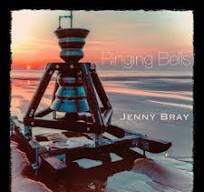
The final song we selected to complement this interview about her new album was Ringing Bells. Jenny told us that this is a true story of one New Years Eve when my youngest son went up into the Belfry of St Peter´s Church in Lantoff and he an my father, a minster, rang the bells to summon in the New Year. William was only about eight years old and he thought it was really exciting to go up into the Belfry with his grandfather. Ringing the church bells at midnight was real fun for him, and it had been snowing earlier in the evening, so he built a snowman while we light sparklers for New Year in our garden. So he and I have vivid memories of the occasion and they are all collected in this song. In fact it is the same group of musicians, as mentioned earlier, who are playing on Ringing Bells.
The photograph shown left is an arts installation on a local beach that also played on Jenny´s mind when naming her song Ringing Bells, as the mechanics of the art work is placed so that the ebbing and flowing tide rings bells as it moves in and out and around the the piece.
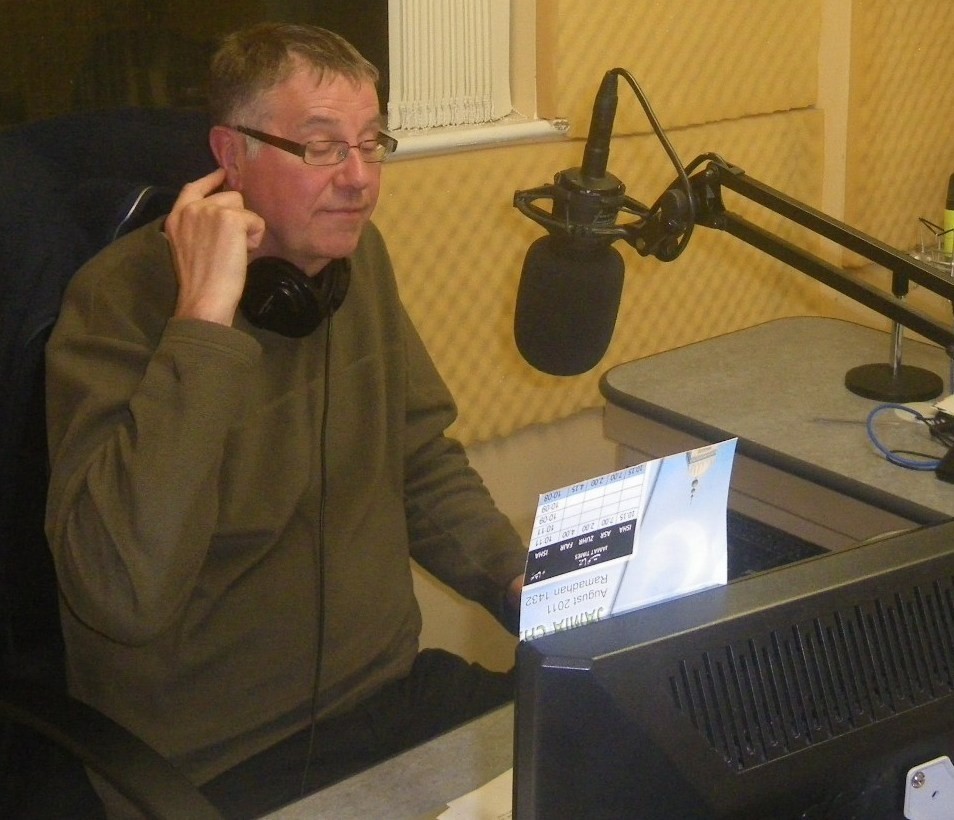
Just let me interject here to remind readers and listeners that they can get hold of this single, and indeed, the album One Hare One I know you did so on the article but there may be readers out ther who didn´t catch the show.
Steve Bewick (right) suggested on air that if readers and listeners would like to check out Jenny´s details on line about gigs, recordings and other news, its an easy find. Alternatively, if any listeners contact Hot Biscuits or any readers of Sidetracks and Detours should contact you, we could PASS IT ON. Good idea, we all thought.
Of course, now it has been released on line the album is available on all major platforms like Bandcamp, for instance, and Spotfy and You Tube and the usual names. And then Jenny will be going back to America to take the album on a tour. She was there last year for nine weeks in the summer, and playing three or four gigs a week. This was across Pennsylvania, New Jersey and Virginia.
This year, 2024, Jenny is going over to Oregon at Easter to meet up with Justin and they are going to do a little bit more recording,… and promotion for the album. Then she´ll be back in the UK for May, June and July before heading back to the East Coast of America for the summer when there are all manner of clubs and festivals and gigs. Of courseher UK fans can pop into gigs, too, and listen to the tracks off the new album, and then you will almost certainly support the album by purchasing a copy-

Jazz On Air
HOT BISCUITS served up by Steve Bewick

This weeks Hot Biscuits Jazz podcast features an interview with ace bass player and arranger, Grant Russell Quartet Featuring his CD, Skating in Central Park.
Also included is Al Rapone, a renowned accordionist and guitarist in the zydeco music genre. Enrico Tomasso & his rhythm from a set at the Ongar Jazz Club. Ant Law displays,` Pure imagination.` Marlena Shaw appearing with Count Basie. Carla Motis Estrada sings of `Sleepy time down south.`
Finishing the podcast is `Sister` from Emma Johnson‘s Gravy Boat. If this looks interesting then like it and pass it on. Join me at
www.mixcloud.com/stevebewick/ 24/07


Music In Portsmouth
The Sitkovetsky Trio
Chichester Chamber Concert series December 2023
review by Peter Andrews
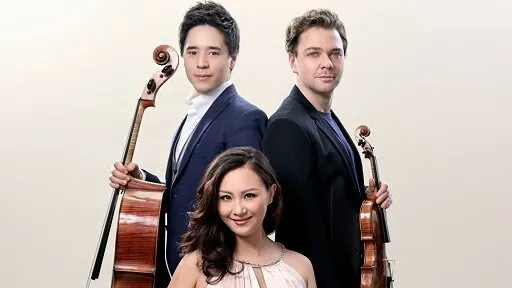
Anyone going to a concert by the Sitkovetsky Trio can expect a performance of verve, energy and total commitment coupled with gentle sensitivity. Such was the case last Thursday evening when a large audience braved a wet and windy evening to attend the fitting venue of the Assembly Rooms in Chichester for the latest concert in the Chichester Chamber Concerts season.
The Sitkovetsky Trio brought with them two of the most well-known and well-loved pieces in the Piano trio repertoire together with a Trio almost certainly never before performed in Chichester.
They opened with the Piano Trio in D major, Op. 70, No. 1. Consisting of three movements, the trio was dedicated by Beethoven to Countess Marie von Erdody, a young Hungarian who had difficulty walking due to partial paralysis of her legs. It is possible that Beethoven, who was severely deaf by the time, and the Countess were drawn together by their disabilities and it was in the Countess’s own house that he wrote this Trio and the trio in E flat. The first movement is original in that the two contrasting themes are revealed together right at the start. It is marked “con brio” and the Sitkovetsky Trio fairly burst into the opening theme given to all three instruments in bare octaves, giving a foretaste of what was to be a brilliant and thrilling performance. If there was an initial danger that the full-toned cello of Isang Enders would drown out the violin of Alexander Sitkovetsky this fear was soon extinguished. The virtuoso piano part was performed here, and indeed throughout the evening, with great élan by Wu Qian.
The second movement, marked Largo assai ed espressivo, is one of Beethoven’s darkest, full of Gothic gloom and tremendous dramatic power. It was this movement that led to the trio being nicknamed “Geister” – “The Ghost”. It may be no coincidence that Beethoven was sketching a projected opera about Macbeth (also in D minor) at the same time as he was writing this movement. The low rumblings in the piano part add to the ghostly atmosphere. Gloomy maybe, but also magnificent and the Sitkovetsky Trio’s rendition could not have been more subtle and gentle. They rounded of the Trio with a lively presto.
An altogether different work is the Schubert Piano Trio in B flat major, Op. 99, D.898 which formed the second half of the Sitkovetsky programme. Full of delightful melodies and invention the piece reflects sunshine and contains some of the most widely loved music written by Schubert. It was assumed to have been written in 1827 (although not published until 1836). Yet this was the same year that Schubert was writing the deeply melancholic Die Winterreise, andwas already unwell. Within a year he was dead, at the age of just 31. Alexander Sitkovetsky told us that this was one of the Trio’s favourite works and their love and care for it was reflected in every note.
Between these two major works in the whole of the chamber music repertoire came the surprise: the Piano Trio No.2 in G minor by Elfrida Andrée. Previously unknown to the present writer, it transpires that Andrée was a formidable composer and organist in Sweden and the first Swedish woman to conduct a professional symphony orchestra. She lived from 1841 to 1929. Her list of compositions runs to at least 135 works including an opera, two symphonies and five other works for full orchestra and numerous pieces for chorus and for the organ. She was organist at Gothenburg Cathedral for sixty two years. A more-or-less contemporary of Ethyl Smythe, she was also an advocate for women’s rights.
Composed in 1885, the trio itself is highly accomplished, in the late Romantic style. It consists of three movements. The first is melodic and peaceful. The second, the soul of the Trio, is romantic and delightful. At its beginning a solo piano introduction invites the cello to join with a plaintive melody followed by the violin. This moves on to a dance-like theme introduced by the piano with a subtle accompaniment on the strings. The third movement had a rather jerky feel but finished strongly. It was perhaps risky to programme this Trio between such formidable works by Beethoven and Schubert but it more than stood its ground and we must be thankful to the Sitkovetsky Trio for bringing it – and the composer – to our attention and for giving it such a careful, committed and enjoyable performance.
This was, as one has come to expect from this ensemble, a thoroughly rewarding concert of virtuoso playing and careful interpretation. In passing I notice that no less than four of the six concerts in the present CCC season contain works by female composers – a welcome development that would have been unheard of just a few years ago. The next concert is on 25th January and will be given by Connaught Brass when the programme will nclude an arrangement of a piece by Florence Price

Sussex World has reported that, with numbers substantially down since covid, Chichester Music Society are moving away from the format which saw them book performers and present concerts across an annual season. Instead, developing a bond of friendship they have long had with the University of Chichester, they will be switching to sponsoring two or three concerts a year within the university’s own concert programme.

For more than 20 years, Chichester Music Society, operated as the Funtington Music Group, a name which reflected its origins. It moved to the University of Chichester some years ago and after much discussion changed its name to CMS better to reflect the way it operated. Sadly the name change coincided with the pandemic and the lockdowns, and it has been a struggle ever since
Chairman Chris Hough said: “Since the Covid situation we have had a very low membership. We used to be about 100 members and we’re now down to a lot less, maybe 30 or 40 which is really not a viable number for putting on and promoting the kinds of events we like to do. We need 60 to 80 members to cover ourselves. We have done the last couple of seasons but really we do think that we have now reached the end of the road in terms of offering a comprehensive programme.”
Music In Portsmouth

Profile: BOGDAN VACARESCU, violinist
The Menuhin Room Concert Series
Bogdan Vacarescu (right) ) is a Romanian virtuoso violinist living in the UK. He has toured internationally since his teens, including to the Sydney Opera House, the Athenaeum in Bucharest, the Romanian National Radio Hall, the United Nations Concert Hall in New York, New Morning in Paris, Kings Place and the Southbank Centre in London.
He has made numerous recordings for Romanian National Radio and Television, BBC Radio, ABC Australia and played on soundtracks for films and documentaries, most notably in collaboration with Oscar winners Stephen Warbeck and Gabriel Yared, the BBC and ABC Television.
He toured the world for many years with the comedy-cabaret classical string quartet “Graffiti Classics” and the Balkan band “Paprika.”
His recent release, Violin and Piano Thrillers with renowned British pianist Julian Jacobson, was made Album of the Year in Romania and received a 5-star review in Musical Opinion. It features Enescu’s Sonata no. 2 in F minor followed by virtuosic gems rarely performed since Heifetz. New projects include a collaboration with Bulgarian pianist Valentina Seferinova.
As founder and leader of “String Dimensions” he showcases beautiful chamber music rarely heard in today’s concert or radio programmes.
With Unicorn Frequency he focuses on reviving and reinterpreting Hungarian folk, Romanian laments and showpieces, Bulgarian dances, Russian gypsy gems, Italian pizzicas and tarantellas and Griko tunes, free improvisation and jazz, interspersed with unique arrangements of masterpieces from the classical repertoire.
Bogdan is currently associate lecturer at the University of Chichester where he teaches violin. Bogdan is a graduate of the Music Conservatory in Bucharest and the Royal Academy of Music in London as a student of Beno Schwartzman, Paul Ratz and Gyorgy Pauk.
On Saturday 27 January 2024, international virtuosos Bogdan Vacarescu and Valentina Seferinova will be presenting a stunning programme for violin and piano featuring treasures by Ralf, Vivaldi, Vitali and Sarasate at the Menuhin Room at Portsmouth Central Library.
Music In Portsmouth conducted an enkightening interview with the musician to preview the event.
What are you looking most forward to when performing at this concert?
I have a great deal of admiration for Valentina, with whom I played in July.
On this occasion, we will be covering a huge swathe of history in our music, from the Pre-Classical through to the Classical and Romantic periods.
Who and/or what have been the most important influences on your musical career or interest in music?
I was born in Romania. Both my parents are musicians: my mother was a music teacher, and my father played double bass in the Bucharest State Opera House orchestra. One benefit of this was that I watched nearly all the major operas and ballet performances from a young age, getting to know what pieces they were from the first few notes!
I tried piano but because Swan Lake has some marvellous violin solos, at the age of four I decided to learn violin. I’ve a lot to thank Bernard Schwartzmann, my teacher between the age of four and twelve. At the age of five, I made my first public appearance, which was also the first of many competitions at national level.
A few years later I started lessons with Paul Ratz, a prominent violinist and concertmaster of the Bucharest Opera orchestra.
I attended the George Enescu Music College and the National Music University of Bucharest where I had several teachers, however Ratz remained my mentor.
Ratz’s teaching approach was unique. He encouraged students to find solutions through experimentation and his style of teaching would change according to the personality of each student. He used a right-hand bowing technique taken from the time of Charles de Beriot at the Franco/Belgian School, further developed by his teacher’s lineage, Vasile Filip and George Enescu. We listened to the greatest 20th-century violinists, including the “king”, Jascha Heifetz.
Subsequently, I moved to London where I received a scholarship to study at the Royal Academy of Music with Gyorgy Pauk.
What have been the greatest challenges of your musical career so far?
Personal connections play a big part in getting on in your career if you’re a musician, which isn’t in itself a bad thing. However, I have experienced the effects of corruption first hand, and these days there’s even more competition for the “top” spots, so there’s more corruption than there used to be. I can recall being given a second prize in a chamber music competition because the son of the sponsor had to get the first prize or being told that “you are not one of our people”.
I have suffered physical challenges, starting with acute tendonitis at the age of 23, which put me out of action for a year. For the better part of the past four years, because of osteo-arthritis I had to stop playing until I discovered Qigong. Musicians need to take care of their bodies, to avoid hunching and right shoulder issues, for example. It’s good that these days people are encouraged to do at least one hour of physical exercise per day.
What are the particular pleasures and challenges of collaborating with other musicians?
I founded and lead the String Dimensions chamber group. You can read more about it below. We spend a lot of time bouncing ideas about and trying things out. There’s rarely one right answer or one authority on what is “correct.”
Are there any composers for whom you feel a particular affinity?
I am especially keen on composers from the Romantic period, for example Paganini, Kreisler, Sarasate. There’s a great deal of freedom in their music. There’s also Bazzini, Lipinsky and Paganini, who were all good friends with each other. With Paganini you need to bring out the melody well; it’s hard to play, but you need to make it sound easy and pretty.
I also use my own interpretation to play Bach, which some purists complain about, but (contrary to public opinion) Bach used to do a good deal of improvisation.
What are your most memorable experiences, either as a performer, composer or listener?
I was very happy to come back to music-making in July this year in Chichester after many years of enforced, health-related absence, and even happier when I discovered that I could sustain my performance from a physical point of view.
At fourteen I performed for the first time as a soloist in the company of a symphony orchestra. We played Henri Vieuxtemps’ 4th Concerto which for me was one of the most exhilarating moments up to that point.
It’s been great to extend in folk music since I moved to the UK. I was asked to play by a Balkan folk band, and as a result set up Unicorn Frequency. I was also encouraged in this by performing with Nigel Kennedy non-classical music. You can read more about this below.
What advice would you give to those who are considering a career in music?
Only do it if you love it.
Work hard and you will get your “slice of the cake”.
Do physical exercise.
Expand your knowledge by reading and listening: this can lead to great ideas.
How would you define success as a musician?
Creating a better version of yourself every day.
What would you like to be doing in 5 years’ time?
I’ve got many ideas, but the violin will remain the main focus. I’d like to do some recordings, and I am in the early stages of writing a book about my spiritual journeys: I hope that I will have finished it by then!
Only do it if you love it.
Work hard and you will get your “slice of the cake”.
Do physical exercise.
Expand your knowledge by reading and listening: this can lead to great ideas.
How would you define success as a musician?
Creating a better version of yourself every day.
What would you like to be doing in 5 years’ time?
I’ve got many ideas, but the violin will remain the main focus. I’d like to do some recordings, and I am in the early stages of writing a book about my spiritual journeys: I hope that I will have finished it by then!


A Reader´s Perspective, All Points Forward Americana Number-Crunching :
THE CONNUNDRUM
by Peter Pearson

Sarah Jarosz has a new album out 26th Jan. There are some youtube previews which so far I have to say fail to impress me. However, she plays Celtic Connections in Glasgow this week and also London I think. It is common for US artists to fly in to Celtic Connections and either play a couple of selected other venues or team up with the Transatlantic Sessions tour as a guest. Their main guest this year is Carlene Carter (right) (who is not a favourite of mine) plus they give Manchester a miss, as many are doing, in favour of Liverpool-so I won’t be going.
My opening paragraph seems to link to a piece in Sidetracks And Detours since I read Norman’s S&D article last Tuesday 16th January, titled Americana Number Crunching, with great interest.
Geoffrey Himes, who wrote a piece in Paste On line magazine that Norman attributed as a prime source for the Americana Number Crunching deate that took place in S & D, is a well-respected American music journalist but I can’t help but feel that whilst his comments stimulate legitimate debate, nothing is likely to change.
It seems to me that the demands of the industry have always dominated the American music industry award scene and always will but isn’t this true of most entertainment awards?
The Americana genre, or sub genre as some critics refer to it, was borne out of the American music industry’s wish to categorise those artists who did not neatly fit into the existing mainstream genres and in the process facilitate a niche for media exposure, in particular music radio and album promotion.

American country music had become more and more commercialised. The film Urban Cowboy started a trend in country music culture which tore its roots to shreds. Hands up those that remember the Line Dancing craze it spawned and the creation of the Country Music Television channel, both of which made their way to the UK.

Artists such as Garth Brooks (right) started to dominate the scene, playing to sold out major stadia. It was more about the spectacle than the music.

Artists such as Nanci Griffith and Emmylou Harris who had been able to achieve record deals with major labels found that the labels demanded hit records requiring them to radically change their style, both of music creation and presentation.

Even before that Norman’s and my favourite, John Stewart, (shown right on far left) had been compelled by the BeeGees label RSO, to write a hit record and in response conjured up the song Gold, a song containing the lyric, “people out there turning music into gold”, which was a complete contrast to anything he had done before.
John was probably one of the first of those artists now falling under the Americana umbrella to create his own label. It meant that he was able to maintain his artistic independence but at the expense of forsaking the financial, promotion and distribution support and exposure provided by the major labels. Instead of opening for the Eagles he played to his own fans whenever and where he wished.

Those not forming their own labels and who found themselves dumped or too heavily compromised by the majors also found refuge in indie labels such as Rounder and Sugar Hill in the USA and Round Tower which housed Gary Hall (left) , the UK singer-writer and Katy Moffatt form the States amongst several other excellenet artists, and Proper Records in the UK. These labels were more sympathetic to the quality of the music and placed less demands on the desire to pander to a mass market, whilst still enabling the artists to continue to earn a reasonable income from their art.
Most of the Americana acts eschew the whole current USA country music scene which is founded on turning out hit records on a regular basis and in turn garnering the awards, but more importantly, increasing the profitability of the major labels.
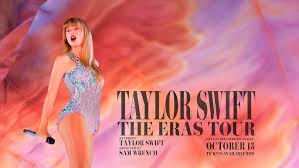
Taylor Swift Artists such as Taylor Swift have managed to progress beyond the boundaries of country music into mainstream pop, offering even more lucrative rewards. Her career progression is interesting. She started out playing small country music venues and her albums appeared on the country charts. She became an accomplished songwriter after initially using established Nashville songwriters songs on her albums. She is also business savvy and well advised. After a couple of changes in record labels she ended up in a division of the giant Universal Music Group (UMG) and morphed into a more mainstream pop performer.
As part of her record deal with UMG she stipulated that should UMG sell its 3.5% holding in Spotify the label will distribute a portion of the proceeds to all the artists on the label. She also negotiated a deal to take ownership of her own master recordings. This is one example where an artist has been able to call the tune (no pun intended)
The Taylor Swift deal is in the public domain and helps other artists financially but who knows what deals might not be in the public domain that enables a label to promote one artist at the expense of others.
360 record label deals enable a label to have an exclusive contract with an artist whereby the label not only takes a share of the artist’s music sales, but also percentages of revenue from other ventures, such as concerts, merchandise, television appearances, or publishing.
Awards and many other aspects of the music industry are driven by a handful of major corporate players who are able to promote their artists and will continue to do so. Is it fair? No. But it is an industry and just as with other industries, corporate power prevails. They call the numbers regardless of quality.
Whilst streaming has solved the distribution problem for emerging artists without a major record deal it has shifted the balance of power to the tech giants and consolidated the power of the major record labels. Spotify with its Marquee offering enables labels to pay for aggressive pop up ads, encouraging users to listen to a new record or artists.
Its system of royalty payments is geared to favour the major labels.


logo Island Insights.
BOHEMIA: Playa Blanca December 2023
review by Norman Warwick
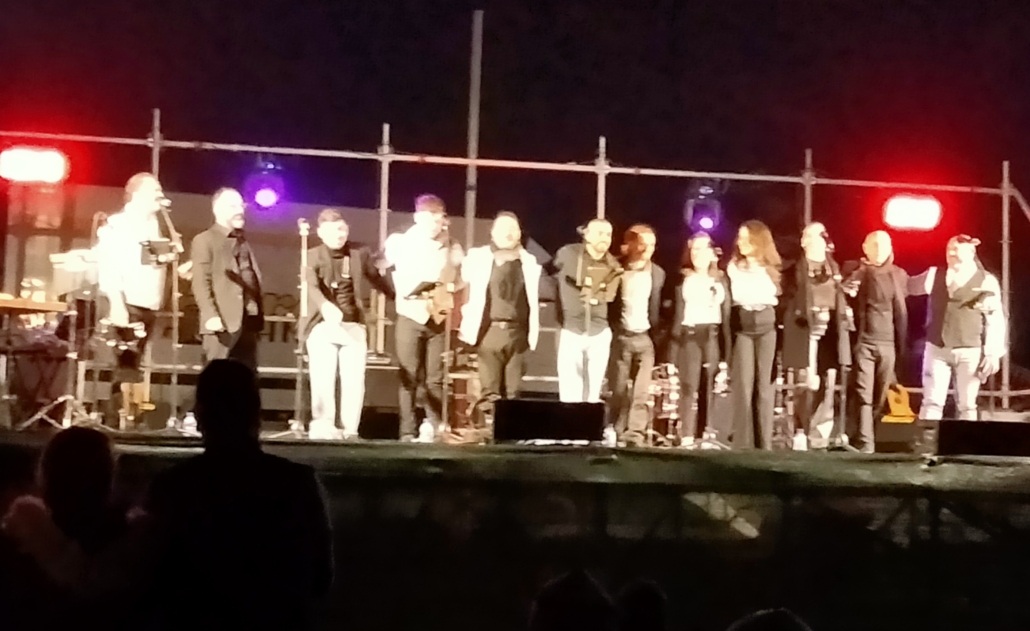
Noticing a flier on a petrol station till area, I pnly had time to scribble time the details of details regarding date, time, venue and artist´s name.
We hadn´t previously heard of the Bohemia musical ensemble, so we weren´t sure at all what to expect from them when we arrived to hear this musical ensemble of which we had not previously heard.
Having really enjoyed the Yaiza Municipal Brass Band the previous evening, we arrived tonight at a venue just down the road from there, in the square in front of the church in Playa Blanca. Our two must-remain-anonymous reporters were already there, and had ´saved´ seats for each of the four of us in the back row of the open-air seating arrangement.
´It´s going to be loud,´ said xxx, , knowingly jerking his thumb back to where the high platform stage was set up. I could certainly see why he might think so, given theat twelve microphone stands and musician´s stations were set up. There was a pretty high tech sound and lights system being tested and that attention was being paid to the presentation of the sound.
It turned out to be a great concert that genuinely deserved to be nominated as the best concert of the festive period here on Lanzarote.
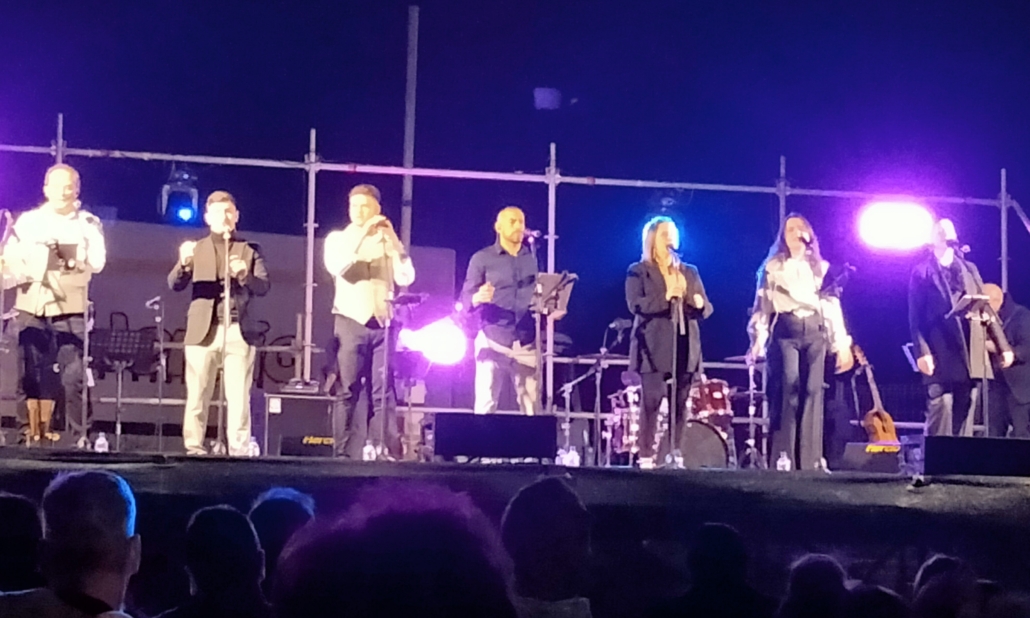
However, I think my opinion is more subjective than objective, because Bohemian played the sounds I Love so much. This was Soanish Language Americana, and I could hear the intertwining musical roots (and routes) of Spanish folk lore, the songs that were heard on the cattle drives and sung round the night-time campfire by the cowboys, with those carrying British folk songs and influences from Texas and Mexico.
There was plenty of ´jingle bell rock´ with the three female singers dancing up a storm behind their mic stands, and ther audience callpin along with great enthusiasm.
The strings, brass, keyboard and percussion of this tightly bound band frequently ´relaxed´ by perfoming slower, more ballad like songs, and it was at these times when I heard soaring harmonies between the male and female vocalists and tenderly deliveries of some beautiful verses.
If forced to give clues to their sounds I would say that Bohemia reminded a little of the Eastern European sounds of raggle-taggle gypsy bands and the fusion sounds of Britain´s Jools Holland And His Big Band,
I swapped business cards with one of he major male players afteR the show, and we have agreed to conduct a who, what, when, where, why. interview. I haven´t yet found an on line presence, so I hope that interview will provide us and our readers with more information about a band that is fully worthy of further consideration.


Our excellent team of writers will bring you more of the news, previews, interviews and reviews from all across the arts and right around the world next weekwhen we will somehow find the nerve to examine Dylan´s writing standards. We will also examine the legacy of poetry and song left by the lamented Shane MacGowan.before we wander down sidetracks and detours that will lead us to a Lanzarote post office where there is a love letter from Manchester UK waiting for me.So long as is nothing too lurid I will share the contents. We are sure that at least one of our readers, Larry Yaskiel ,will be delighted to see a piece on Peter Frampton, and once having read it I´m pretty sure he will start building a bigger bookshelf ! So come join us along the sidetracks and detours that wind through the swings and roundabouts of life.And remember if yuou have an arts related story about a fvourite book, live gig or piece of music, or a favourite art gallery, theatre or artis just send us a piece to normanwarwick55@ gmail.com
We regret that as a not for profit blog we cannot pay for contributions but they weill always appear fully attribued.. See you next week when we are back with another edition of our weekend walkabout supplement walkabout PASS IT ON: Meanwhile there are sidetracks and detours a-calling and we´re bound for the mountains and the sea.:



Leave a Reply
Want to join the discussion?Feel free to contribute!